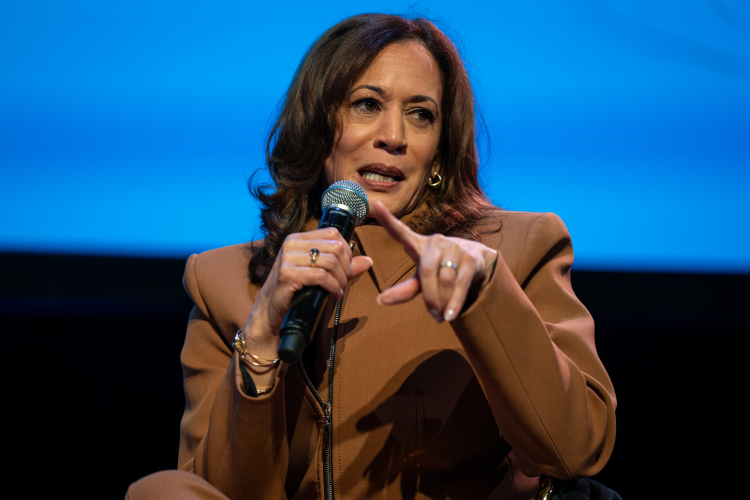
The University of Pennsylvania is among nine colleges that President Donald Trump’s administration has asked to sign a compact, adhering to certain principles in exchange for preferences in receiving “substantial and meaningful federal grants.”
Those principles, laid out in a 10-page document, would give Trump wide-ranging influence over the private university’s hiring, admissions, tuition pricing, and even curriculum to some extent — in effect impacting the entire education enterprise.
The proposed compact marks the latest demand from the White House as Trump works to exert authority over elite universities like Penn, which this summer reached a deal with the administration after $175 million in federal funding was paused due to the past participation of a transgender athlete.
The latest proposal, first reported in the Wall Street Journal, already has drawn criticism from Penn’s chapter of the American Association of University Professors.
“When an invitation is accompanied by consequences for not accepting it, it is in fact a threat, not an invitation,” the professors’ group said. “Decisions about hiring, tuition, admissions, grades, and discipline are made according to shared governance procedures that are essential to the independence of the university.”
» READ MORE: The story behind Penn’s deal with the Trump administration on trans athletes and Lia Thomas
The group urged Penn not to sign the pact.
“Whatever the consequences of refusal,” the professors wrote, “agreeing would threaten the very mission of the university.”
The national AAUP and American Federation of Teachers also issued a statement, urging universities to reject the Trump administration’s “entirely corrupt” offer.
Penn did not respond to a request for comment.
Other colleges sent the memo, called the “Compact for Academic Excellence in Higher Education,” are: Vanderbilt University, Dartmouth College, the University of Southern California, Massachusetts Institute of Technology, the University of Texas at Austin, the University of Arizona, Brown University and the University of Virginia, according to the Journal.
» READ MORE: Penn scrubs diversity initiatives from its website to comply with Trump order
May Mailman, senior adviser for special projects at the White House, told the Journal that the colleges were selected because there was a belief they would be “good actors.”
“They have a president who is a reformer or a board that has really indicated they are committed to a higher-quality education,” Mailman told the Journal.
Penn’s existing agreement with Trump administration
Penn in July struck an agreement with the Trump administration over the prior participation of a trans athlete on its women’s swim team.
Penn agreed to send “personalized” letters of apology to its female athletes who felt aggrieved by transgender swimmer Lia Thomas’ participation on their team, and said it would restore Penn records and honors they would have won if not for Thomas. After reaching the deal, the White House said it would restore $175 million in paused funding.
Penn also agreed to issue a public statement prominently on its website, saying it would abide by Title IX — the civil rights law that prohibits sexual harassment and discrimination — “as interpreted by the Department of Education.” The agreement is restricted to athletics and does not affect other areas of university operations.
Perhaps most controversially, the school said it would specifically cite by name Trump’s executive order titled “Defending Women From Gender Ideology Extremism and Restoring Biological Truth to the Federal Government” and state that all its “practices, policies, and procedures adopted and implemented by the university with respect to women’s athletics” would comply with that order, as well as a similar order issued in February.
The university also agreed that its women’s athletic policies would adhere to the definitions of the words sex, female, male, women, and men as spelled out in Trump’s executive order, the resolution states.
The new compact, however, would extend those definitions over more than just sports. Colleges would have to commit to “defining and otherwise interpreting ‘male,’ ‘female,’ ‘woman,’ and ‘man’ according to reproductive function and biological processes,” the compact states.
“For those of us in gender studies, it is absolutely an intrusion into curriculum,” said Jessa Lingel, president of the Penn-AAUP chapter.
Other demands in proposed compact
The colleges also are being asked to ban the use of race and sex in hiring, admissions, and financial support for students and limit international undergraduate enrollment at 15%, with no more than 5% from one country. The Trump administration also wants access to information about students.
“Universities shall share all known information about foreign students, including discipline records, upon request and as relevant, with the Department of Homeland Security and the Department of State,” the compact states.
Schools must require applicants take the SAT or other standardized admission test, according to the compact. (Penn already requires the SAT or ACT. The requirement had been paused for four years after the pandemic started but is resuming for the 2025-26 admission cycle, the school announced in February.)
» READ MORE: Penn will reinstate its standardized test requirement for admission after a four-year pause
The pact also directs colleges to freeze tuition for American students for five years, prevent grade inflation, and make conservative students feel more welcomed.
“A vibrant marketplace of ideas requires an intellectually open campus environment, with a broad spectrum of ideological viewpoints present and no single ideology dominant, both along political and other relevant lines,” the document states.
Parts of the document also seemed to aim at the conflict on campuses last year during pro-Palestinian protests, including encampments.
The universities can’t “knowingly… allow demonstrators to heckle or accost individual students or groups of students or allow obstruction of access to parts of campus based on students’ race, ethnicity, nationality, or religion.”
In requiring “institutional neutrality,” colleges are asked to prevent employees from sharing political views as representatives of Penn unless the issue directly impacts the university. Universities also must eliminate “units” that “purposefully punish, belittle, and even spark violence against conservative ideas,” the compact said.
Penn adopted its version of an “institutional neutrality” policy last year, noting the school would limit statements on local and global events “except for those which have direct and significant bearing on University functions.”
Lingel said Penn’s AAUP chapter is connecting with chapters on the other university campuses being asked to sign the compact.
“Reasonable people can disagree on what tuition should be, on how many international students we should take, on the best ways to insure free speech on campus,” she said. “But what reasonable people cannot debate is that in a democracy, the federal government should not be dictating any of these things at a private university or really any university.”



